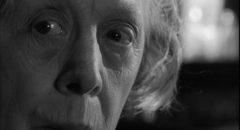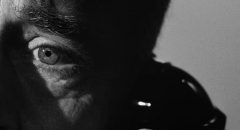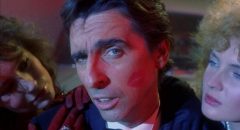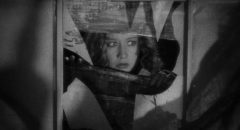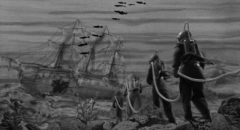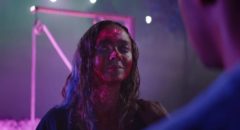
The label “visionary” gets tossed around far too easily, but it does apply to two filmmakers whose work begins in genre conventions yet rises to explore themes of horror and human fallibility in complex and original way: too long absent from the screen, Richard Stanley and Larry Fessenden have returned with some of the best work they’ve ever done – the former with the H.P. Lovecraft adaptation Color Out Of Space and the latter with Depraved, a modern meditation on the narrative and themes of Mary Shelley’s Frankenstein.
